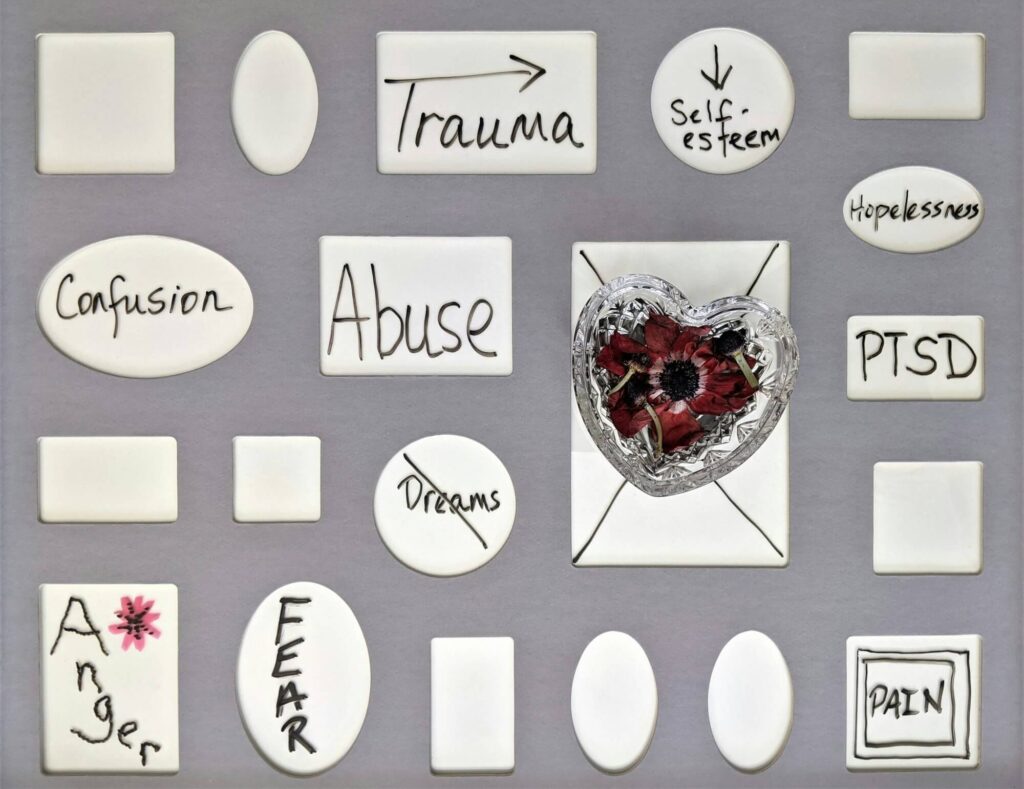Post-Traumatic Stress Disorder (PTSD) is a mental health condition that can develop after someone experiences or witnesses a traumatic event. PTSD can affect anyone, regardless of age, background, or profession. As mental health awareness grows, so too does the need for people to understand PTSD in a deeper, more empathetic way.
According to Statistics Canada, about 9.2% of Canadians will experience PTSD at some point in their lives, making it crucial to shed light on this condition and explore its symptoms, causes, and treatment options.


PTSD is a mental health condition that occurs after experiencing or witnessing a life-threatening or highly distressing event. Common triggers include violent assaults, natural disasters, serious accidents, and military/war combat. While it’s normal to feel distressed after such events, individuals with PTSD may continue to experience intense feelings of fear, stress, or helplessness for months or even years afterward.
People with PTSD often struggle with intrusive memories, flashbacks, and nightmares related to the event. These symptoms can interfere with daily life, making it difficult to maintain relationships, hold down a job, or feel safe in everyday situations.
PTSD is when your brain’s alarm system stays on high alert even after the danger has passed. It’s more like your brain and body are still in fight-or-flight mode, even when there is no longer any immediate danger. This heightened state of alertness can lead to symptoms such as hypervigilance, anxiety, and difficulty relaxing.
In Canada, PTSD affects a significant portion of the population. According to Statistics Canada, about 9.2% of Canadians will experience PTSD at some point in their lives.
Certain groups, such as first responders (paramedics and emergency medical technicians (EMTs), police officers, firefighters, search and rescue personnel), military personnel, refugees, and Indigenous communities, may be more vulnerable to developing the condition due to the nature of their work or historical trauma.

PTSD manifests in a variety of ways, and not everyone experiences the same symptoms. However, the condition is generally characterized by four main types of symptoms:
Symptoms typically appear within the first few months after the trauma, but in some cases, they may emerge years later. The intensity of symptoms can fluctuate over time, especially if triggered by stress or reminders of the event.
PTSD is a result of exposure to a traumatic event, but not everyone who experiences traumas will develop the condition. Several factors can influence the risk of developing PTSD:
The severity, duration, and proximity of the trauma can affect whether PTSD develops. Direct exposure to life-threatening events, repeated trauma, or events involving personal violence often lead to a higher risk.
People with a history of depression, anxiety, or other mental health disorders may be more susceptible to PTSD.
Having a strong support network of family and friends can reduce the likelihood of developing PTSD. Conversely, social isolation can increase vulnerability.
Genetics and brain chemistry play a role in how individuals process trauma. Some people may be biologically predisposed to experience higher levels of stress, making them more prone to PTSD.
A history of childhood trauma or abuse increases the likelihood of developing PTSD later in life. Addressing PTSD and childhood trauma specially in therapy can lead to significant improvements in mental health.
PTSD can affect anyone at any age, but some studies suggest that younger adults might be more vulnerable.
Women are more likely to develop PTSD than men, possibly due to higher rates of domestic violence and sexual assault.
Diagnosing post-traumatic stress disorder (PTSD) involves a thorough evaluation by a qualified mental health professional, such as a psychologist or psychiatrist. Since PTSD symptoms can overlap with other mental health conditions like anxiety, depression, or panic disorders, an accurate diagnosis is critical to ensure proper treatment and support.
Our team is equipped with advanced techniques to provide a thorough assessment.
For more information about our assessment process, please visit this page.

At Different Clinic, we offer a range of innovative and evidence-based treatments tailored to meet the diverse needs of individuals with PTSD. Our approach combines advanced therapies with traditional methods to provide comprehensive care. Here’s the treatment options available:
PTSD is a serious but treatable condition that affects many people in Canada, especially those who have experienced or witnessed traumatic events. With appropriate treatment and support, individuals with PTSD can lead fulfilling, healthy lives. If you or someone you know is struggling with PTSD and looking for a therapist for trauma, seeking help from mental health professionals at Different Clinic is an important step toward recovery.
At Different Clinic, we offer tailored treatment plans and professional PTSD therapist to help manage this condition and guide you through your healing journey. Reach out to us today for compassionate, expert care.
References:
4711 Yonge St., 10th Floor, Unit 10097, Toronto, ON M2N 6K8
Monday to Friday 8:00 AM to 8:00 PM / Weekends: Saturday from 10:00 AM to 6:00 PM.

